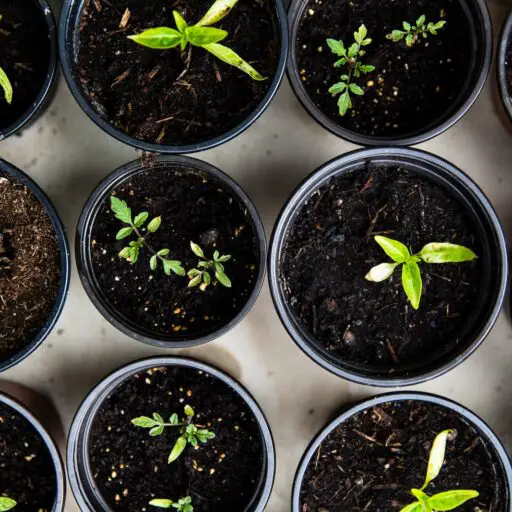Support our educational content for free when you purchase through links on our site. Learn more
Community gardening has become a popular trend in recent years, and for good reason. Not only does it provide a way for people to connect with nature and grow their own food, but it also offers a wide range of benefits for individuals and communities as a whole. In this article, we will explore the many ways that community gardening can positively impact quality of life issues. From reducing stress and improving mental well-being to fostering a sense of community and promoting sustainable living, community gardening has something to offer everyone. So grab your gardening gloves and let's dig in!
Table of Contents
- Quick Answer
- Quick Tips and Facts
- Introduction
- Benefits of Community Gardening on Quality of Life Issues
- FAQ
- Conclusion
- Useful Links
- Reference Links
Quick Answer
Community gardening offers a multitude of benefits for individuals and communities, including stress reduction, improved mental well-being, physical health benefits, social connection, and positive environmental impact. Engaging in community gardening can lead to a higher quality of life by providing opportunities for relaxation, exercise, social interaction, and sustainable living practices.
Quick Tips and Facts
- Community gardening can be done in various settings, such as shared plots, rooftop gardens, or even vertical gardens.
- Gardening has been shown to reduce stress and anxiety levels, leading to improved mental health.
- Growing your own food through community gardening can promote healthier eating habits and increase access to fresh produce.
- Community gardens often serve as gathering places for neighbors, fostering a sense of community and social connection.
- By utilizing sustainable gardening practices, community gardens contribute to a healthier environment and promote biodiversity.
Introduction
In today's fast-paced and technology-driven world, it's easy to feel disconnected from nature and our communities. However, community gardening offers a unique opportunity to reconnect with both. By working together to cultivate and maintain shared garden spaces, individuals can reap a multitude of benefits for their overall well-being. In the following sections, we will explore the various ways that community gardening positively impacts quality of life issues.
Benefits of Community Gardening on Quality of Life Issues
1. Stress Reduction
✅ Community gardening provides an excellent outlet for stress relief. Spending time in nature and engaging in gardening activities has been shown to reduce stress and anxiety levels. The act of gardening itself can be meditative and calming, allowing individuals to focus on the present moment and find solace in the beauty of nature. Additionally, the physical activity involved in gardening releases endorphins, which are known to improve mood and reduce stress.
2. Improved Mental Well-being
✅ Engaging in community gardening has been linked to improved mental well-being. The combination of spending time outdoors, connecting with nature, and engaging in a meaningful activity can have a positive impact on mental health. Gardening has been shown to reduce symptoms of depression and anxiety, improve self-esteem, and increase feelings of happiness and satisfaction. It provides a sense of purpose and accomplishment as individuals witness the growth and transformation of their plants.
3. Physical Health Benefits
✅ Community gardening is not only good for the mind but also for the body. Gardening is a physical activity that can provide exercise and help individuals stay active. Digging, planting, weeding, and watering all require physical effort, which can contribute to improved cardiovascular health, increased strength and flexibility, and enhanced overall fitness. Additionally, growing your own food through community gardening encourages healthier eating habits and provides access to fresh, nutritious produce.
4. Social Connection
✅ One of the most significant benefits of community gardening is the sense of community it fosters. Community gardens serve as gathering places where neighbors can come together, share knowledge, and socialize. Gardening alongside others creates opportunities for building relationships, exchanging gardening tips, and learning from experienced gardeners. Community gardens often organize events and workshops, further strengthening the sense of community and providing opportunities for education and skill-building.
5. Environmental Impact
✅ Community gardening plays a vital role in promoting sustainable living practices and protecting the environment. By utilizing organic gardening methods, such as composting and natural pest control, community gardens minimize the use of harmful chemicals, reducing pollution and promoting biodiversity. Additionally, community gardens can contribute to local food security by producing fresh food in urban areas, reducing the need for long-distance transportation and the associated carbon emissions.
FAQ
What are 5 benefits of a community garden?
Community gardens offer a wide range of benefits, including:
- Stress reduction and improved mental well-being.
- Physical health benefits through exercise and access to fresh produce.
- Social connection and a sense of community.
- Environmental impact through sustainable gardening practices.
- Opportunities for education, skill-building, and sharing knowledge.
What are the positive effects of community gardens?
Community gardens have numerous positive effects, such as:
- Improved mental health and well-being.
- Increased physical activity and healthier eating habits.
- Enhanced social connections and a sense of belonging.
- Sustainable gardening practices that benefit the environment.
- Increased access to fresh, nutritious food in urban areas.
What problems do community gardens solve?
Community gardens can help solve various problems, including:
- Lack of access to fresh, affordable produce in urban areas.
- Social isolation and disconnection from nature.
- Food insecurity and limited availability of nutritious food.
- Environmental issues, such as pollution and loss of biodiversity.
- Limited opportunities for community engagement and social interaction.
What social issues can be impacted by community gardens?
Community gardens can have a positive impact on various social issues, such as:
- Strengthening community bonds and promoting social cohesion.
- Providing opportunities for intergenerational and cross-cultural interactions.
- Addressing food deserts and improving access to healthy food options.
- Empowering individuals and communities through education and skill-building.
- Fostering a sense of ownership and pride in the local community.
Conclusion
Community gardening offers a multitude of benefits for individuals and communities, positively impacting quality of life issues. Engaging in community gardening can reduce stress, improve mental well-being, promote physical health, foster social connection, and contribute to a healthier environment. By creating shared garden spaces and working together, individuals can not only grow their own food but also cultivate a stronger sense of community and well-being. So grab your gardening tools and join a community garden near you to experience these incredible benefits firsthand!
Useful Links
- Shop gardening tools on Amazon
- Explore community gardening books on Amazon
- Find community gardening supplies on Walmart
- Discover handmade gardening products on Etsy
Reference Links:
- https://www.ncbi.nlm.nih.gov/pmc/articles/PMC6334071/
- https://www.ncbi.nlm.nih.gov/pmc/articles/PMC7746894/
- https://www.sciencedirect.com/science/article/am/pii/S0959652619318141
- https://www.ncbi.nlm.nih.gov/pmc/articles/PMC6054011/
- https://www.sciencedirect.com/science/article/am/pii/S0924857920300996
Shop gardening tools on Amazon and find community gardening supplies on Walmart. For handmade gardening products, check out Etsy.
Visit the official Community Gardening™ website here.






